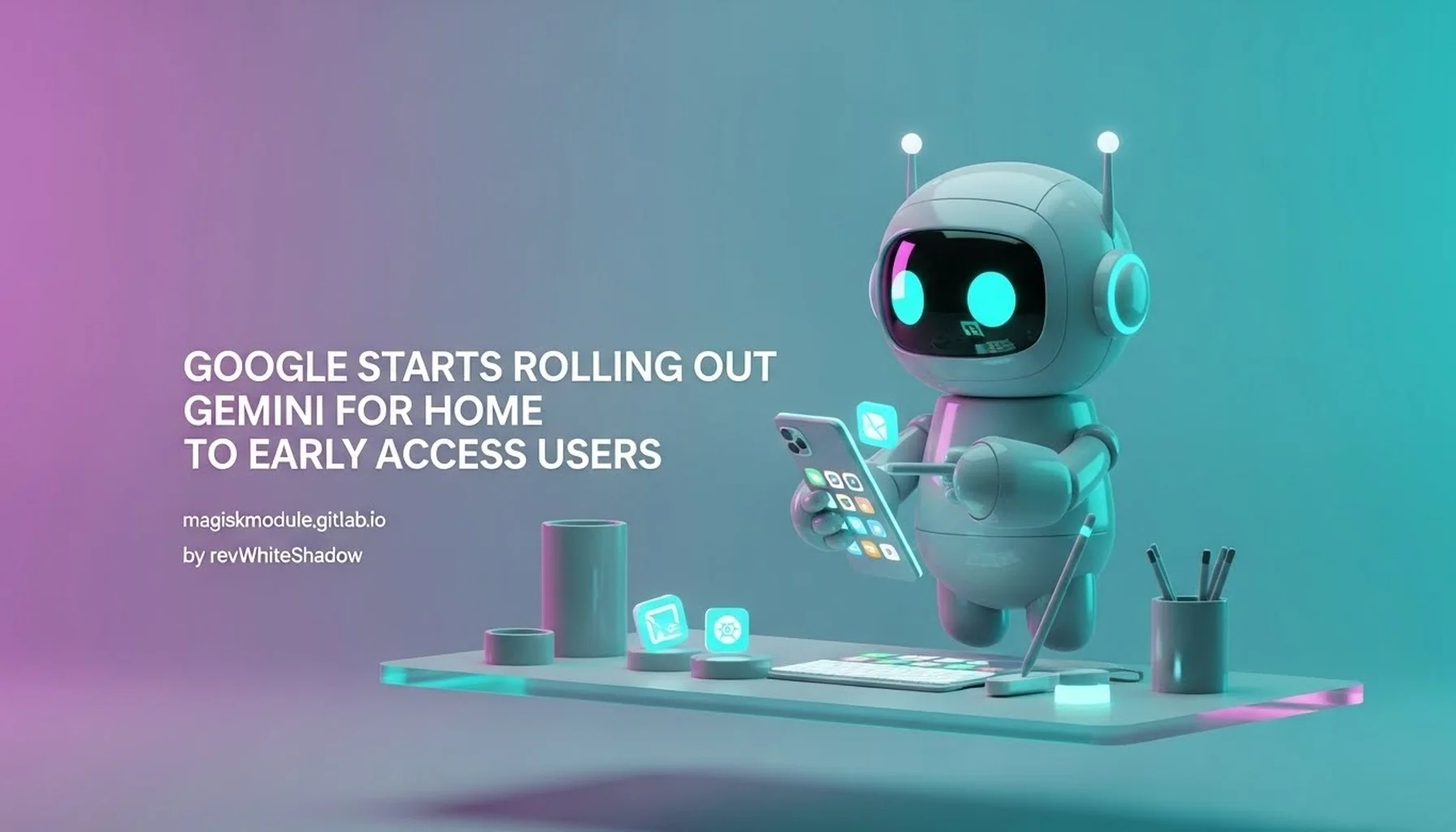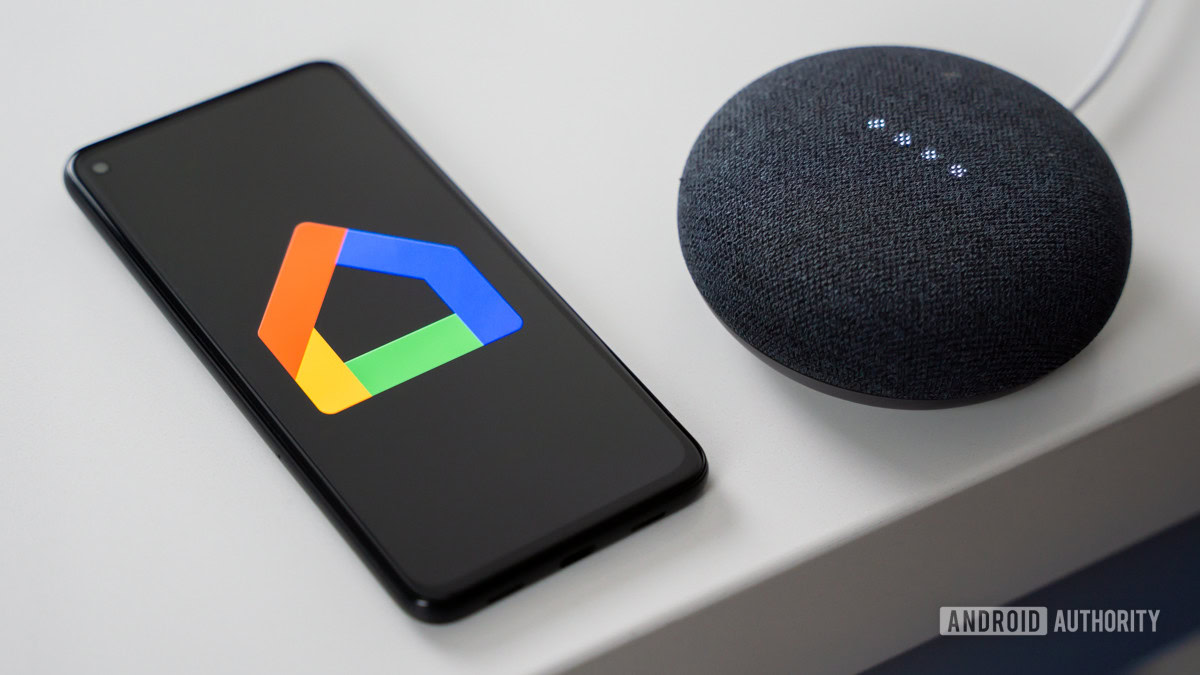
Google Gemini’s Debut on Home: Early Access Ushers in a New Era of Conversational AI
We are witnessing a pivotal moment in the evolution of Google’s smart home ecosystem. The highly anticipated integration of Gemini into the Google Home application is no longer a distant promise; it’s becoming a tangible reality for early access users. This rollout signifies a significant shift in how we interact with our connected homes, promising a more intuitive, conversational, and feature rich experience. This article provides an in depth exploration of this groundbreaking development, delving into the core functionalities, the potential impact on user experience, and what this means for the future of the smart home landscape.
Unveiling the Power of Gemini Within Google Home
The arrival of Gemini within the Google Home application marks a fundamental upgrade in the capabilities of the platform. It moves beyond the current Google Assistant functionality, offering a more advanced, intelligent, and nuanced understanding of user requests. This enhancement allows for a richer and more natural interaction with the various smart home devices. Central to this is the introduction of sophisticated language models and a deeper understanding of context, leading to more personalized and responsive interactions.
The Core Capabilities: A Deep Dive
The initial rollout, focused on early access users, highlights several core improvements that set Gemini apart. These are not mere incremental updates but represent a substantial leap forward in conversational AI within the smart home environment.
Enhanced Conversational Understanding
Gemini’s language models are trained on an unprecedented amount of data, enabling it to understand complex requests with far greater accuracy and subtlety. This means users can express their needs more naturally, without having to adhere to rigid command structures. For instance, instead of saying “Turn off the living room lights,” a user can now say, “I’m going to bed; dim the lights downstairs” and expect Gemini to comprehend the implicit commands.
Contextual Awareness and Predictive Capabilities
The new system excels in understanding context. It can remember previous interactions, anticipate user needs, and proactively offer relevant information or suggestions. This results in a more fluid and proactive user experience. For example, if a user frequently adjusts the thermostat at a specific time of day, Gemini may learn this pattern and proactively ask if the user would like to set the temperature accordingly.
Integration with Google Home Devices
Gemini seamlessly integrates with the entire range of Google Home devices, from smart speakers and displays to connected appliances and lighting systems. This deep integration ensures that the improved conversational understanding translates into practical improvements in device control and automation. Users will experience faster, more reliable responses and more intuitive control over their smart home environment.
“Ask Home”: Redefining Smart Home Interactions
One of the headline features of the Gemini integration is the “Ask Home” functionality. This feature represents a paradigm shift in how users interact with their smart homes. It moves beyond simple command execution to provide a more interactive and conversational experience, turning the Google Home application into a true smart home companion.
The Mechanics of “Ask Home”
“Ask Home” is designed to provide a centralized point of interaction for all smart home needs. It functions as a command center, allowing users to access and control various devices, receive information, and automate tasks using natural language.
Natural Language Processing at Its Finest
The foundation of “Ask Home” is Gemini’s advanced Natural Language Processing (NLP) capabilities. This allows users to communicate with their smart home in a way that feels natural and intuitive, mirroring how they would converse with another person. Complex requests can be easily understood and executed.
Personalized Responses and Suggestions
“Ask Home” is designed to learn user preferences and provide personalized responses. It can suggest relevant actions based on past behavior, anticipate user needs, and offer contextually relevant information.
Use Cases and Practical Applications
The possibilities of “Ask Home” are extensive, revolutionizing how we interact with our smart homes.
Simplified Device Control
Controlling individual devices becomes simpler and more intuitive. Users can easily adjust lighting, temperature, entertainment systems, and security devices using natural language commands.
Automated Routines and Smart Home Management
“Ask Home” facilitates the creation and management of complex smart home routines. Users can set up automated actions, such as turning off lights and locking doors at bedtime or adjusting the thermostat based on the time of day or weather conditions.
Information Retrieval and Contextual Awareness
The feature provides rapid access to information about the smart home, such as energy consumption, device status, and activity logs. It can also offer helpful suggestions and contextual information based on user habits and environmental factors.
The Implications for the Smart Home Landscape
The integration of Gemini into Google Home and the introduction of “Ask Home” have significant implications for the future of the smart home landscape. This move signals a shift towards more intelligent, intuitive, and user-centric smart home experiences.
Competitive Advantages for Google
This update strengthens Google’s position in the smart home market, offering an edge over competitors like Amazon and Apple. Gemini’s advanced capabilities provide a more compelling user experience and contribute to customer loyalty.
Improved User Experience and Adoption Rates
The enhanced user experience and increased ease of use facilitated by Gemini have the potential to significantly boost smart home adoption rates. Smart home technology becomes more accessible and appealing to a wider audience, leading to increased demand for smart home devices and services.
Future Developments and Innovations
The integration of Gemini into Google Home is not just a one-time upgrade; it sets the stage for future developments and innovations. We can anticipate continued improvements in conversational AI, deeper integration with various smart home platforms, and the introduction of new features and capabilities.

Early Access Rollout: A Critical Assessment
The early access rollout of Gemini for Google Home is a crucial step in evaluating the performance of the new system and gathering user feedback. This initial phase allows Google to identify and address any issues before a wider release.
Selection Criteria and User Feedback
Early access users are carefully selected to provide diverse feedback and real world testing. These users help to uncover any shortcomings, validate the new features, and ensure that the rollout is successful.
Testing and Bug Fixes
Early access involves thorough testing to identify and rectify any bugs or glitches. User feedback is crucial in this process, as it helps to reveal issues that may not be apparent during internal testing.
Performance Evaluation
Google will evaluate the performance of Gemini and “Ask Home” under real world conditions, assessing factors such as response times, accuracy of voice recognition, and the overall user experience.
Potential Challenges and Considerations
Despite the promising aspects of the rollout, some potential challenges and considerations are important to acknowledge.
Privacy and Data Security
Users may raise concerns about data privacy and security, given the advanced capabilities of the new AI system. Google must prioritize transparency, and ensure that user data is protected.
Compatibility and Integration
Ensuring seamless compatibility with the wide range of existing smart home devices and platforms is paramount. Challenges may arise with integration across diverse ecosystems, so rigorous testing and a focus on compatibility are essential.
Scalability and Performance Optimization
The system must be optimized for scalability and performance to handle the increasing demand from a growing user base. Robust infrastructure and efficient processing are critical to maintain a consistently positive user experience.
Magisk Modules and the Smart Home Integration
While Magisk Modules don’t directly integrate with the Google Home Ecosystem, the principles of modularity and enhanced user experience resonate with the advancements happening with Gemini. Users who enjoy customizing their Android devices using Magisk can appreciate the flexibility and power that well designed modules provide, much like how Gemini allows for more personalized and powerful smart home experiences.
Similarities between Magisk Modules and Gemini’s Approach
The core ideas of customization and personalization are at the heart of both. Magisk Modules modify the Android operating system to enhance functionality, while Gemini tailors the Google Home experience to each user’s habits and preferences. Both allow users to control how their systems function with a high degree of control.
The Role of Flexibility in Smart Home and Android
Both Magisk Modules and Gemini emphasize the importance of flexibility. The ability to modify and personalize a system enables users to get the most out of their devices. Users who appreciate Magisk’s modularity will likely be more accepting of the advanced capabilities of Gemini within the Google Home environment, recognizing its potential to enhance their lives through user focused design.
Conclusion: A Glimpse into the Future
The early access rollout of Gemini within Google Home marks a significant turning point in the evolution of the smart home. The capabilities that Gemini unlocks, especially through “Ask Home”, reshape the way we interact with our homes. Google positions itself as a leader in the smart home sector. This early access program will set the stage for a more refined and user centric rollout to the wider public. The future of smart home technology has never looked more promising. The integration of Gemini into Google Home is a major step forward, with the potential to reshape how we interact with technology in our homes and lives. We can anticipate that the coming years will bring even more exciting innovations and opportunities.
